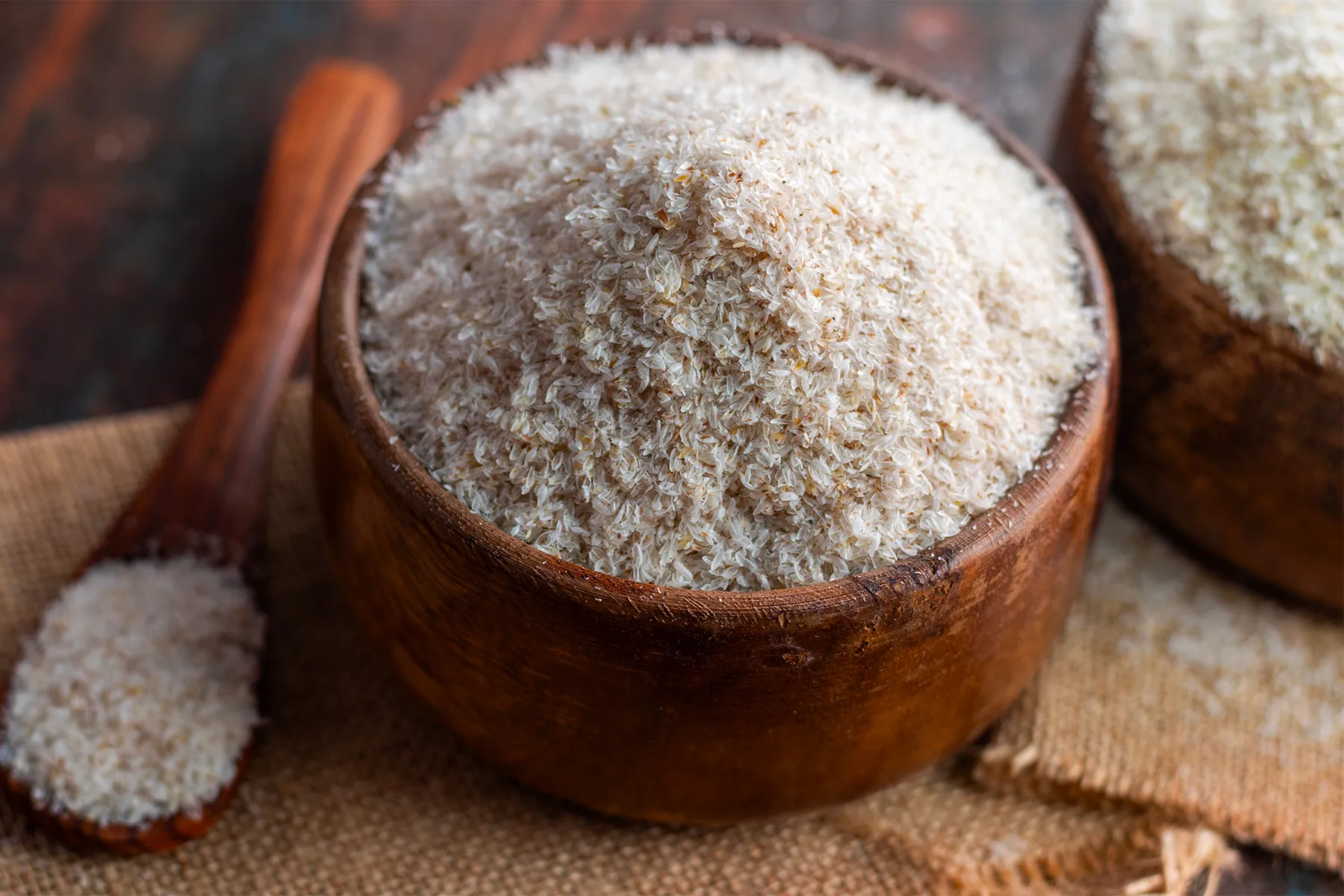Psyllium husk is rich in soluble fiber that can support digestion and cardiovascular wellness. It may also lower your chances of developing certain medical issues.
Psyllium derives from the outer coverings of seeds of the Plantago ovata plant.
It’s most often recognized as a laxative and is sold over-the-counter (OTC) under names such as ispaghula husk (Fybogel).
Beyond its laxative role, some studies indicate that psyllium might offer benefits for multiple body systems, including the heart and pancreas.
Continue reading to discover more about the potential health advantages of psyllium.

Digestive health
Psyllium acts as a bulk-forming laxative. It absorbs water in the intestines, making stools more consistent, frequent, and easier to pass.
It’s useful for relieving constipation and reducing the risk of complications like hemorrhoids and anal fissures.
Psyllium also serves as a prebiotic, which helps nurture healthy populations of probiotics in the gut.
A balanced community of beneficial gut bacteria is important for robust immune function. This helps your body combat infections, lower inflammation, and preserve healthy tissues and cells.
Heart health
Evidence shows that taking soluble fiber supplements such as psyllium may assist in managing cholesterol levels.
A systematic review found that ingesting 6 to 15 grams daily (g/d) of fiber supplements reduced LDL (“bad”) cholesterol by up to 24% and lowered total cholesterol by as much as 20%.
According to the evidence, elevated cholesterol can raise your risk for several serious conditions, including:
- heart disease
- diabetes
- coronary artery disease
- high blood pressure (hypertension)
- heart attack
- stroke
If you have any of these issues or have been advised to monitor your cholesterol, consult a physician about whether adding psyllium to a heart-healthy eating plan might help.
Managing your weight
Keeping a healthy weight is important for overall wellbeing, particularly if you are overweight or have obesity.
Managing weight effectively can help prevent numerous chronic diseases, such as:
- heart disease
- hypertension
- diabetes
- gallstones
- breathing difficulties
- certain cancers
A review found that psyllium may aid weight loss in individuals who are overweight or have obesity, potentially lowering the risk of long-term health problems.
The researchers observed that taking an average of 10.8 g/d before meals for nearly five months helped participants lose weight.
Talk with your doctor about whether psyllium might be appropriate if you’re trying to lose weight.
Learn more about using psyllium for weight control.
Diabetes
If you have diabetes, dietary choices are crucial to keep insulin and blood glucose levels stable.
Some research suggests that fibers like psyllium could help people achieve healthier glycemic control.
However, current guidance notes that evidence is still limited regarding psyllium’s effects for diabetes.
Therefore, consult a healthcare professional before using psyllium if you have diabetes. They may suggest a more suitable option for your condition.
Psyllium dosage
The appropriate psyllium dose varies by product and reason for use.
Common recommendations are 7 to 14 g/d daily. Some studies, though, recommend taking 20 to 25 g/d of psyllium with about 500 milliliters of water to fully optimize the supplement’s effects.
This guidance considers that recommended daily fiber intake for adults is 25 g/d for women and 38 g/d for men, while the average adult in the United States consumes only about 15 g/d.
Consequently, increasing psyllium intake may provide greater benefits.
Always talk with a healthcare provider before starting psyllium supplements, particularly if you have a gastrointestinal disorder and are experiencing a flare-up.
In some situations, fiber supplements like psyllium can aggravate symptoms.
Possible side effects
Like all supplements, psyllium can cause side effects. New users or those exceeding recommended dosages may be more susceptible.
The most frequent adverse effects are gas (flatulence) and bloating.
Other potential side effects include:
- abdominal pain and cramping
- diarrhea
- loose stools
- increased bowel movement frequency
- nausea and vomiting
Rarely, an allergic reaction to psyllium can occur, which in severe cases may lead to anaphylaxis — a medical emergency.
Seek immediate medical attention if you experience any of the following:
- difficulty breathing
- swelling, especially around the face or throat
- skin rashes or severe itching
- bluish, pale, or gray discoloration of the tongue or skin
- dizziness, lightheadedness, or fainting
How can I get psyllium?
Psyllium is typically taken as a powder or wafer and is also sold in capsules, granules, and liquid concentrates. It is the active component in many OTC fiber laxatives, such as:
- Metamucil
- Fybogel
- Fiberall
- Cilium
- Maalox Daily Fiber Therapy
- Uni-Laxative
Follow package instructions when using these products. Remember that psyllium’s action in the lower gut depends on absorbing fluids, so drink plenty of water each day.
Frequently asked questions
What does psyllium do for the body?
Psyllium is a bulk-forming laxative that retains water to loosen and bulk up stools, making them easier to pass.
Is it OK to take psyllium every day?
Daily psyllium use is generally considered safe. However, supplements should complement dietary intake rather than replace wholesome food sources over the long term.
Who cannot take psyllium?
The United Kingdom’s National Health Service (NHS) advises against psyllium for people with prior allergic reactions to it or those with conditions like bowel obstruction, colonic atony, and phenylketonuria. Individuals with kidney disease should also take care.
If you have underlying health issues or take medications, consult your healthcare provider before using psyllium.
What is the downside of psyllium husk?
The NHS notes that about 1 in 100 people experience gas and bloating when taking psyllium husk supplements.
Takeaway
Psyllium is a fiber-based laxative commonly used to relieve constipation symptoms.
Research indicates it may also support digestive and heart health and assist with weight management.
Consult a healthcare professional before starting psyllium; they can suggest the appropriate dose for you or recommend a different therapy if needed.


















Leave a Reply
You must be logged in to post a comment.